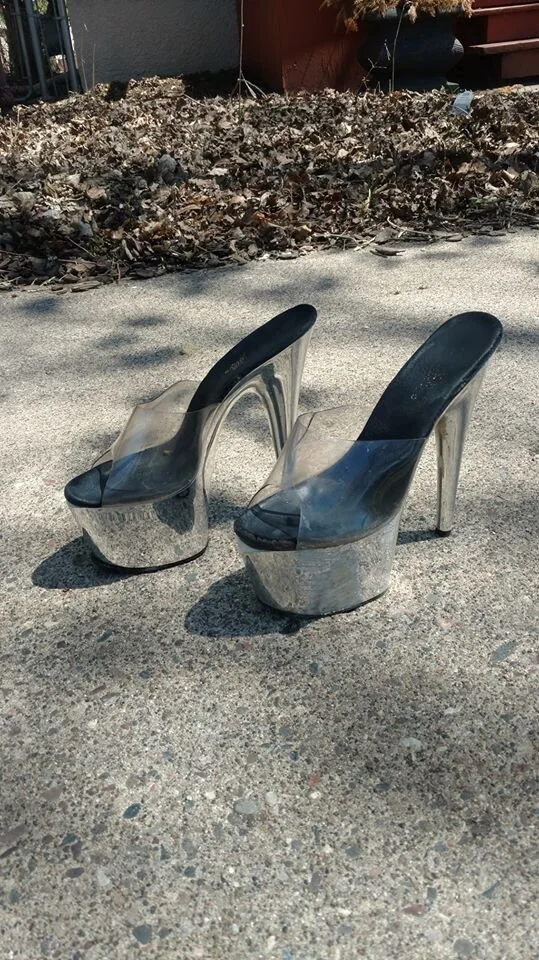A few years ago, The Lutheran Ambassador asked me to write a story about the women of Easter, based on the account in the Gospel of Mark, and so I did. They published it in April 2017, calling it “Mary at the cross and tomb.” I call it “Finished.”
Easter has come and gone, but I guess I’m just not over it. Like Mary Magdalene, I’ve seen too much.
Here’s the story…
*****
Jesus shifted on the iron spikes, and his head drooped. From a distance, my friends and I watched—and prayed. That morning, soldiers had shredded my Lord with their whips and strung him up on a cross to die, but now they laughed as if sharing a joke at the market instead of in this place where hell touched earth. My stomach roiled, and I took a deep breath to quell the nausea.
Salome looped her arm around mine. “But he was going to be king.” Her features twisted, and she searched my face. “He can’t die, Mary. He can’t.”
Another Mary, the mother of James and Joses, peered at me, and her chin wobbled.
“Maybe we didn’t understand,” I said. “Maybe he knew something we didn’t. And it was better.” But my heart clenched like a fist, refusing to let go.
The one who is forgiven much, loves much.
Years earlier, I had loved nothing. My broken body had housed a shattered mind. Illnesses, accidents, and compulsions battered me. Once, I even thrashed into the flames of my cooking fire. Afterward, I writhed in the dirt in blistered skin; my hours melted into blackness.
But then came Jesus. He rested his hand on me, calling out the seven demons that had tormented me.
“Mary Magdalene,” he said. And for the first time, my name had sounded like beauty. “It is finished.”
And it was.
The crowds at the cross scattered, exposing us women, huddled far from where the masses had jeered or sobbed. Many of Jesus’ followers had vanished too. But my heart anchored me to the soil. How could I leave my Lord to his pain when he had saved me from mine?
Jesus struggled against his nails and scanned the meager gathering. Then his gaze rested on me. Those eyes that had once seen through my affliction still saw me.
“It is finished,” he cried out.
The same words that had made me new.
His muscles twitched; his head slumped. The sky darkened, and although only mid-afternoon, shadows draped the body of my Savior. Jesus was gone.
A rich man named Joseph carried Jesus’ body to a tomb in his garden. Mary and I trailed him and hid behind a tree as we watched the man spread ointment and spices onto fresh linens. And then he wrapped our friend. The burial complete, Joseph heaved a stone into place to seal the entrance to the grave. Dusk was approaching; the Sabbath was near. And I had work to do.
I scurried home and scooped sweet spices into a bowl, my hands trembling. I thumbed away tears as I stirred. The day before, I had prepared the meal for Jesus’ supper in the upper room with his followers. If only I were mixing oil into the flour for bread tonight instead of oil with perfumes to anoint my friend’s body. If only I were roasting the lamb with thyme and rosemary instead of blending my tears with myrrh and aloes. If only I had known then what was to come.
On the first day of the week, I squinted at the early rays of light that sliced through the darkness of my house. The start of a new week without my Jesus. How would I live without him?
A knock at the door. I unlatched it. Mary and Salome stood outside, each holding a bowl. Grief had stripped their faces of color and rimmed their eyes with purple.
“I’m ready,” I said, my own bowl of spices cradled in one arm.
Gravel crunched under our sandals, and dew drenched the hems of our tunics as we trudged to the garden.
“Oh no,” said Salome. “How will we anoint his body? Remember the stone? It’s too big for us.” A sob jostled her words. “Who will move it?”
I inhaled a shaky breath. “I don’t know.”
Mary gripped her bowl in both hands. She stared into the distance, her mouth a straight line.
In the garden, the crocuses exploded in yellow and the hyacinths in pink. White narcissus curled around our path. Where were these flowers two days ago? Or had our sadness hidden them? They bloomed now—the bougainvillea as profuse as forgiveness and the lilies as fragrant as hope.
We neared the grave. But what was that up ahead?
I gasped. “The stone’s already been moved.”
I hurried into the tomb, and my friends followed. A young man, in a robe whiter than light, sat inside. Salome shrieked. My heart hammered, and my bowl clattered onto the stone floor, spilling the spices. Terror clawed its way up my throat. Mary splayed a hand over her mouth.
“Don’t be afraid,” said the young man. “You’re looking for Jesus who was crucified. But he’s not here. He’s risen.” He stood and gestured toward the door. “Go and tell his disciples.”
My friends and I clambered from the tomb and scrambled back onto the path. We clutched the fabric of our skirts and ran. Blinded by joy, we forgot all about our tear-soaked beds, our morning’s task at the tomb, and the spices we had abandoned somewhere along the way.
Because it didn’t matter anymore.





























